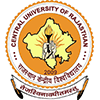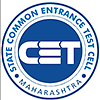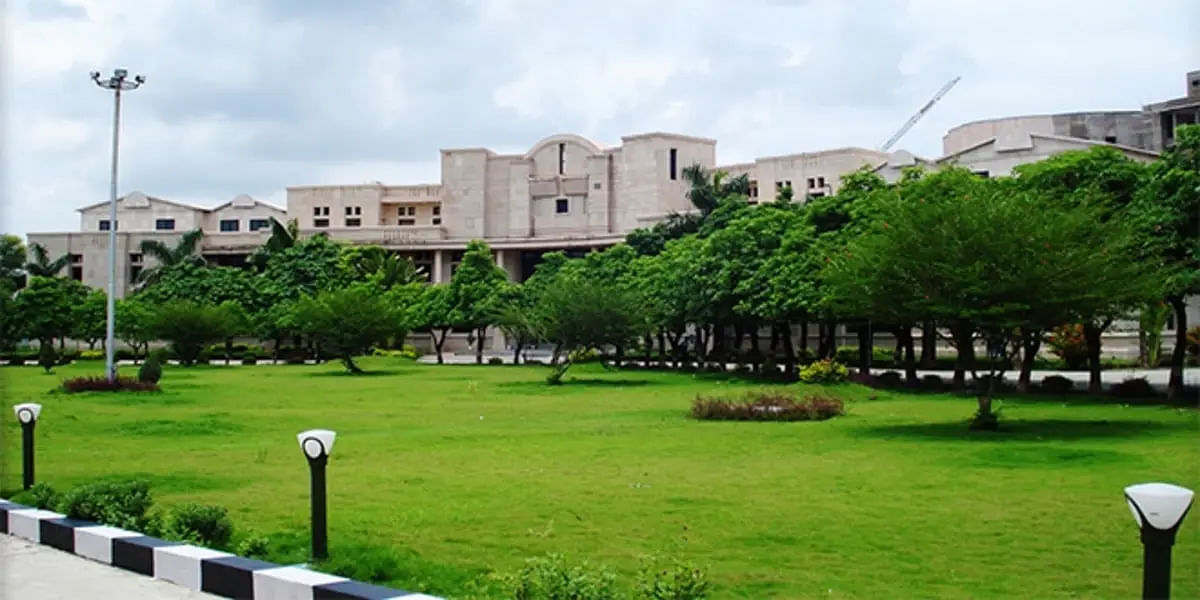GATE Humanities and Social Sciences syllabus 2025 is categorised into three sections. The first two sections include aptitude and reasoning. The third section comprises a subject from the given options like economics, English and more.
Table of Contents
GATE Humanities and Social Sciences syllabus 2025, or XH, is divided into three sections. The first two sections comprise general aptitude and comprehension and reasoning which are compulsory. For the third section, candidates choose according to their preference from subjects like economics, linguistics, English, Philosophy, psychology, or sociology.
The GATE exam is considered one of the toughest exams in the world, particularly the humanities and social sciences papers which require a strong theoretical foundation. Thus, aspirants must be thorough with the humanities and social sciences GATE 2025 syllabus.
GATE Humanities and Social Sciences Syllabus 2025
Before beginning to prepare for the GATE exam, referring to the GATE humanities and social sciences syllabus 2025 is crucial to understand all the topics clearly, check important topics and know how much the candidate already knows. For candidates' reference section-wise GATE humanities and social sciences syllabus is provided below in PDF format, along with the important topics that they must cover during the exam preparation:
GATE 2025 General Aptitude and Reasoning Syllabus
The GATE humanities and social sciences syllabus 2025 first two sections with GA and reasoning and comprehension are included to test the candidate's knowledge and critical thinking ability. The GATE Syllabus, along with the PDF, is detailed below.
|
GATE Syllabus 2025 for General Aptitude and Reasoning Direct Link |
The following are the important topics to cover under the GATE 2025 General Aptitude syllabus:
- Reading Comprehension
- Expression
- Analytical Reasoning
- Logical Reasoning
Also Read: How to Tackle General Aptitude in GATE?
GATE 2025 Humanities and Social Sciences Syllabus
Under section 2 of the GATE humanities and social sciences syllabus, candidates are required to select a specialisation out of a list of subjects. The following is the list of subjects along with the important topics covered under each subject:
Economics (XH - C1)
- Microeconomics
- Macroeconomics
- Statistics, Econometrics and Mathematical Economics
- International Economics
- Public Economics
- Development Economics
- Indian Economy
English (XH - C2)
- Multi-genre literature in English - poetry, novels, short stories, drama, creative non-fiction, and non-fiction prose with emphasis on the long 19th and 20th centuries.
- Especially in a comparative context, anglophone and in English translation, literature from India and, extending to some degree, the larger Indian subcontinent.
- Literary criticism and theory; critical and cultural intellectual traditions and approaches widely referred to and used in the discipline of English.
- History of English literature and English literary studies.
- Research approaches and methodologies, including interpretive techniques responsive to literary forms, devices, concepts, and genres.
Linguistics (XH - C3)
- Language and Linguistics
- Levels of Grammar and Grammatical Analysis
- Phonetics and Phonology
- Morphology
- Syntax
- Semantics and Pragmatics
- Historical Linguistics
- Sociolinguistics
- Areal Typology, Universals, Cross-linguistic Features
- Methods of Analysis
- Applied Linguistics
Philosophy (XH - C4)
- Classical Indian Philosophy Orthodox Systems: Sankhya
- Heterodox Systems: Carvaka
- Upanishads, Bhagavadgita, and Dharmasastras
- Kasmira Saivism, Saivasiddhanta, Virasaivism, Saktism, and Vaishnavism
- Contemporary Indian Philosophy
- Vivekananda
- Classical and Modern Western Philosophy
- Metaphysics
- Epistemology
- Ethics
- Social and Political Philosophy
- Logic
- Contemporary Western Philosophy
Psychology (XH - C5)
- Research Methods and Statistics
- Approaches to Research
- Designing Research
- Nature of Quantitative and Qualitative Research
- Ethics in conducting and reporting research
- Statistics in Psychology
- Correlational Analysis
- Regression
- Factor analysis
- Experimental Designs
- Psychometrics
- Biological and Evolutionary Basis of Behaviour
- Perception, Learning, Memory and Forgetting
- Cognition
- Personality
- Motivation, Emotion and Stress and Coping
- Social Psychology
- Social perception
- Development across the Life Span
- Applications of Psychology
Sociology (XH - C6)
- Sociological Theory
- Classical Sociological Traditions
- Structural-Functionalism and Structuralism
- Hermeneutic and Interpretative Traditions
- Post-Modernism, Post-Structuralism and Post-Colonialism
- Conflict theory
- Indian Thinkers, M.K. Gandhi, B.R. Ambedkar, Radha Kamal Mukherjee, G. S. Ghurye, M.N. Srinivas, Irawati Karve
- Research Methodology and Methods
- Conceptualizing Social Reality
- Research Design
- Quantitative and Qualitative Methods
- Research Techniques; Sampling; Questionnaire and Schedule; Statistical Analysis; Observation, Interview and Case study; Interpretation, Data Analysis and Report Writing.
- Sociological Concepts
- Sociological Concepts
- Social Institutions
- Social Stratification
- Social Change
- Agrarian Sociology and Rural Transformation
- Family, Marriage and Kinship; Theoretical Approaches
- Indian Society / Sociology of India
- Social Movements
- Introduction to Social Movements
- Theories of Social Movements
- Social Movement in India with specific reference to social basis, leadership, ideology and Actions
- Social Movements, civil society and globalization
- Sociology of Development
- Perspectives on the Study of Development
- State and Market
- The Micro-Politics of Development
- Sustainable development
Also Read: GATE Geomatics Engineering Syllabus 2025
GATE Humanities and Social Sciences Exam Pattern 2025
As discussed above, the GATE humanities and social sciences syllabus is categorised into three sections. Candidates must be aware of the section-wise weightage so that they can allocate the preparation time accordingly. Here's the detailed GATE 2025 exam pattern for humanities and social sciences that can help candidates understand the paper structure easily:
|
Particulars |
Details |
|
Areas of Question |
General Aptitude: 15 Marks |
|
Reasoning and Comprehension: 25 Marks |
|
|
Humanities and Social Sciences: 60 Marks |
|
|
Total Marks |
100 Marks |
|
Correct Answer |
1 & 2 Marks |
|
Negative Marking |
For 1-mark MCQ, 1/3 mark will be deducted for a wrong answer For the 2-mark MCQ, the 2/3 mark will be deducted for a wrong answer. There will be no negative marking for MSQs and NATs |
|
Exam Mode |
Online |
|
Duration |
3 Hours |
|
Question Pattern |
MCQs, MSQs and NATs |
Also Read: GATE Civil Engineering Syllabus 2025
GATE Humanities and Social Sciences Books 2025
The GATE 2025 books mentioned below remain common for the GA syllabus. The other important books cover the GATE humanities and social sciences syllabus are detailed. Candidates can buy the books online or offline and start the preparation.
|
Syllabus |
Best Books |
Authors/Publishers |
|
General Aptitude |
Wiley Acing the GATE: Engineering Mathematics and General Aptitude |
Anil Kumar Main |
|
Economics (XH - C1) |
Microeconomics |
Robert Pindyck and Daniel Rubinfeld |
|
Macroeconomics |
H. L. Ahuja |
|
|
English (XH - C2) |
Literary Theory |
Nayar |
|
History of English Literature |
Edward Albert |
|
|
Linguistics (XH - C3) |
The Phonetics and Phonology of Contrast: The Case of the Romanian Vowel System |
Margaret E. L. Renwick |
|
Sociolinguistics (Cambridge Textbooks in Linguistics) |
R. A. Hudson |
|
|
Philosophy (XH - C4) |
Classical Indian Philosophy: A History of Philosophy |
Peter Adamson and Jonardon Ganeri |
|
Classical Modern Philosophy: A Contemporary Introduction |
Jeffrey Tlumak |
|
|
Psychology (XH - C5) |
Psychology for UGC-NET-SLET Paper-2 |
NET Industry Experts |
|
Cognitive Psychology |
Kathleen M Galotti |
|
|
Sociology (XH - C6) |
Sociological Theory, Fifth edition |
George Ritzer |
|
Society in India: Concepts, Theories and Recent Trends |
Ahuja Ram |
Also Read: Important & High Scoring Topics for GATE
Preparation Tips for GATE Humanities and Social Sciences 2025
GATE humanities and social sciences syllabus 2025 preparation needs a proper timetable and hard work. Candidates can select the subject of their choice from economics, linguistics, English, Philosophy, psychology, or sociology and go on to prepare for the GATE 2025 exam.
Some of the helpful GATE 2025 preparation tips are as follows:
- Check the Syllabus: Candidates should download the syllabus for the exam before starting the preparation. Further, check the syllabus according to their choice of courses. Check for all the resources available for starting the preparation.
- A timetable is a Must: Candidates must prepare a timetable for the exam preparation. Ensure all the syllabus is covered and deliberate time is offered to each topic.
- Check the Previous Question Paper: Humanities and Social Sciences GATE previous year's question papers are an excellent source of information. Candidates must buy the question banks for better understanding and preparation.
- Revision is the Key: All the syllabus must be revised once the topics are covered. Candidates must indulge in spending weekly time on the revision of each topic. The revision will help in categorically analysing the strong and weak points.
- Go for Mock Test: Candidates must appear for the GATE mock test, offline or online. Various test centres facilitate mock tests for GATE. Enrol and appear for a mock test to ace the preparation.
Also Read: GATE Preparation Strategy for Non-Engineering Background Students








![Indian Institute of Technology, [IIT] Bombay](https://media.getmyuni.com/azure/college-image/small/indian-institute-of-technology-iit-bombay.jpg)

![Indian Institute of Technology, [IIT] Kanpur](https://media.getmyuni.com/azure/college-image/small/indian-institute-of-technology-iit-kanpur.jpg)
![Indian Institute of Technology, [IIT] Kharagpur](https://media.getmyuni.com/azure/college-image/small/indian-institute-of-technology-iit-kharagpur.jpg)

























POST YOUR COMMENT